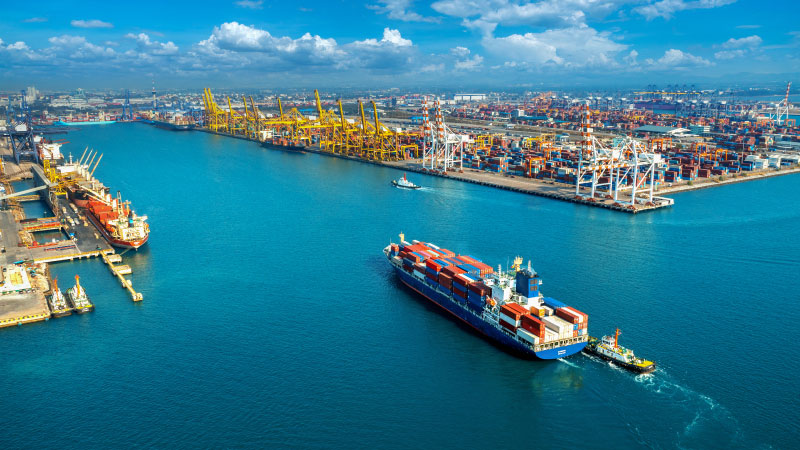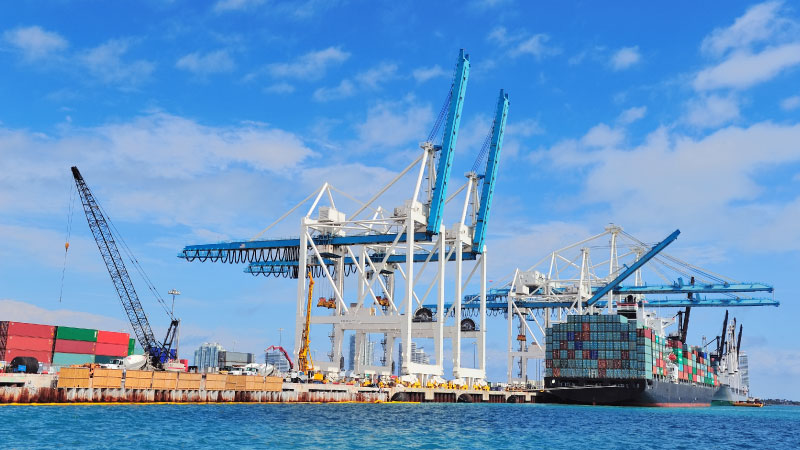The maritime and shipping industry is critical to the seamless flow of global trade, yet it is highly susceptible to risks that can arise without warning. From natural disasters to technical malfunctions and environmental incidents, even minor disruptions in this sector can set off a cascade of consequences that impact international supply chains, economies, and the trust of stakeholders. Despite the importance of having crisis management protocols, many maritime organizations face gaps in preparedness, lacking strategies that align with their broader business goals. Consequently, these organizations may rely on outdated response measures that limit their ability to handle complex and evolving challenges effectively.

The Essential Role of Shipping in Global Trade
As the backbone of the world economy, the maritime and shipping sector facilitates approximately 90% of international goods trade. This network includes a vast infrastructure of ships, ports, and logistics that enable goods to move efficiently across continents. However, this high degree of interconnectedness also makes the industry vulnerable to a unique set of risks. Maritime operations are critical infrastructure, meaning that any significant disruption can destabilize regional or even global economies. Addressing these potential risks requires crisis management strategies tailored specifically to the needs and challenges of the maritime environment. Traditional crisis management approaches may not be sufficient for dealing with the complex and far-reaching consequences associated with maritime incidents.
Given the industry’s role in supporting global trade, the effects of any disruption in the maritime sector extend beyond the immediate business impact, affecting various stakeholders, industries, and consumers worldwide. Incidents like oil spills, ship collisions, port closures, or severe weather-related accidents can result in delays that ripple across supply chains, leading to increased costs and potential shortages. Therefore, a robust crisis management approach that can address multiple layers of response and communication is essential for maintaining operational continuity and minimizing the wider economic and environmental impact.
Unique Risks and Challenges in the Maritime Industry
The maritime and shipping industry is exposed to a range of unique and serious risks. Many of these challenges arise from the industry’s operational environment, where complex logistics intersect with unpredictable natural and human-made factors. Critical incidents that the maritime sector faces can broadly be grouped into several categories:
- Natural Disasters: Extreme weather events like hurricanes, typhoons, and tsunamis can significantly disrupt shipping routes, damage vessels, and endanger crew safety. Climate change has also led to an increase in the frequency and severity of these events, making them an ever-present threat. For example, powerful storms can damage port infrastructure, leading to prolonged delays in loading and unloading cargo. Planning for natural disasters in crisis management means anticipating these disruptions, setting up alternative routes, and preparing for port closures and delays.
- Technical Failures: Technical issues, such as engine malfunctions, electrical failures, or equipment breakdowns, can halt operations unexpectedly. The highly complex machinery on modern vessels requires specialized knowledge and quick response capabilities to ensure these failures do not escalate. Technical malfunctions not only compromise safety but can also lead to substantial financial losses for companies if vessels are forced out of operation for extended repair periods.
- Human Error and Crew Safety: Despite rigorous training and protocols, human error remains a significant risk factor in maritime operations. Situations where crew members lack situational awareness or misinterpret signals can lead to collisions, groundings, or other costly incidents. Ensuring that crews are equipped with up-to-date information and emergency protocols is essential to prevent and manage these risks effectively. Additionally, the isolated nature of working at sea adds an extra layer of challenge to crisis management, as remote locations make access to immediate assistance difficult.
- Cybersecurity Threats: With the increasing reliance on digital navigation, data systems, and automated processes, maritime operations are also vulnerable to cybersecurity threats. Cyberattacks targeting navigation or cargo management systems can lead to significant disruptions and pose security risks for the entire shipping route. Protecting these systems and responding swiftly to cyber incidents is now an integral part of maritime crisis management.
- Environmental Incidents: Accidents that result in environmental damage, such as oil spills or chemical leaks, have far-reaching consequences that affect marine life, coastal regions, and the broader ecosystem. Such incidents often result in costly clean-up operations and legal liabilities. Managing these types of crises requires not only immediate action but also long-term strategies to mitigate environmental impact and prevent recurrence.

The Consequences of Ship Grounding and Accidents
One of the most serious incidents that maritime operators face is ship grounding. When a ship runs aground, the physical damage can be extensive, impacting the hull, cargo, and, in some cases, the surrounding environment. The risks associated with grounding incidents are not limited to financial losses but can also extend to environmental harm, as well as injuries or fatalities among the crew. In severe cases, hull breaches and cargo spills can lead to catastrophic consequences, including pollution of marine ecosystems and coastlines, loss of valuable cargo, and disruptions to nearby communities reliant on marine resources.
These accidents underscore the need for well-prepared crisis management strategies that prioritize the safety of crew members and the preservation of assets. Situational awareness is critical for minimizing the impact of grounding incidents. For example, crew members should be fully aware of emergency response protocols and capable of responding immediately to prevent escalation. Effective training and constant readiness are key elements in managing these types of risks.
Preparing for the Unexpected: Building a Strong Crisis Response Framework
The nature of maritime operations demands a proactive and robust approach to crisis management. When critical events arise, organizations that have invested in crisis preparedness are better positioned to maintain their operations, protect their assets, and respond quickly to mitigate potential damage. A strong crisis management framework involves several essential components:
- Comprehensive Risk Assessment: An initial step in crisis preparation is conducting a thorough assessment of potential risks specific to the organization’s operations, routes, and geographical locations. By identifying the most likely threats, companies can develop targeted strategies and allocate resources effectively. This assessment should include an evaluation of natural, technical, and human-made risks, taking into account any unique factors that may amplify these threats.
- Clear Communication Protocols: In a crisis, clear and timely communication is vital for coordinating efforts and managing the response. Developing protocols that enable efficient communication among crew members, operators, and external stakeholders, such as port authorities or rescue services, can greatly enhance the speed and effectiveness of response efforts. These protocols should also include plans for managing public relations and maintaining transparency with stakeholders and the broader public, as maintaining trust is essential for long-term reputation management.
- Situational Awareness and Real-Time Data: The ability to monitor events in real time allows organizations to make informed decisions based on accurate information. Situational awareness tools, including GPS tracking, weather forecasting, and vessel performance monitoring, provide operators with critical data to understand and respond to emerging threats quickly. Access to real-time data enables organizations to mobilize resources and coordinate responses based on the most current information available.
- Staff Training and Drills: Regularly training staff and conducting emergency drills help ensure that every crew member understands their role and can act decisively in a crisis. Drills for scenarios such as ship grounding, fire outbreaks, or equipment failures reinforce emergency response protocols and build confidence among team members. Effective training can also reduce the likelihood of human error by familiarizing the crew with specific response procedures and emphasizing the importance of situational awareness.
- Coordination with External Partners: Crisis response in the maritime industry often involves collaboration with external stakeholders, such as coast guards, insurance providers, and regulatory agencies. Establishing relationships with these entities before a crisis occurs can facilitate faster and more coordinated responses. When all parties understand their roles and have a communication channel in place, they can work together to address incidents efficiently.
- Environmental Response Planning: Given the potential for environmental impact, maritime organizations should include environmental response measures in their crisis management plans. This includes protocols for containing spills, minimizing contamination, and notifying relevant environmental authorities. Investing in environmentally responsible practices and resources can help mitigate the long-term effects of accidents and enhance the organization’s reputation for environmental stewardship.

The Road Ahead: Enhancing Resilience in Maritime Operations
As the maritime and shipping industry continues to evolve, so do the risks and complexities associated with it. From new cybersecurity threats to increasingly unpredictable weather patterns, maritime organizations must stay vigilant and continuously adapt their crisis management strategies. By adopting a proactive approach to crisis preparation, building robust communication systems, and coordinating with both internal and external stakeholders, the maritime industry can strengthen its resilience and protect its critical role in global trade.

Ultimately, a well-prepared crisis management strategy not only safeguards the organization’s assets but also supports broader economic stability, environmental preservation, and public trust. For organizations willing to invest in these areas, the payoff is a stronger, more adaptable approach to navigating the inevitable challenges that come with operating in one of the world’s most essential and high-stakes industries.



